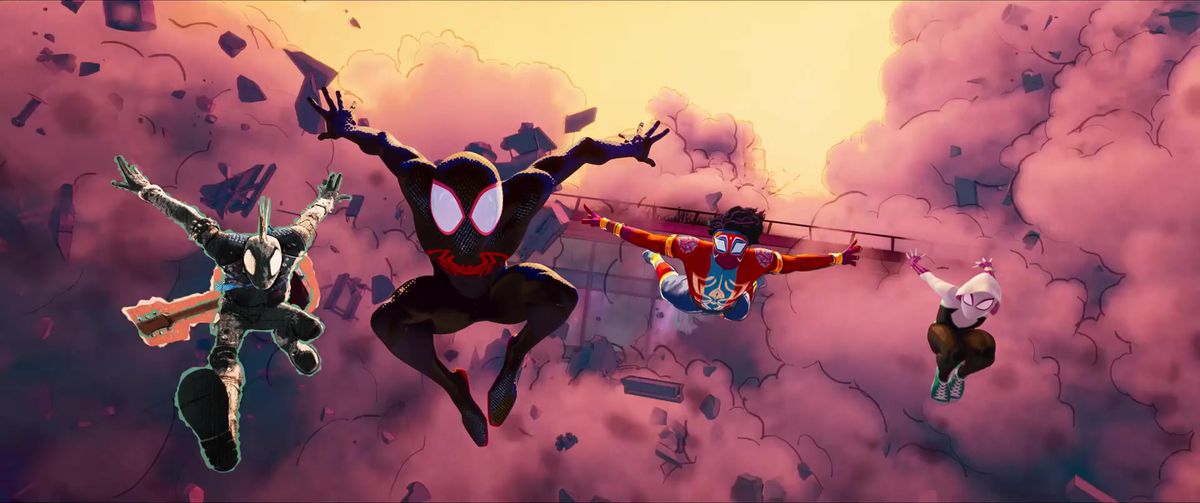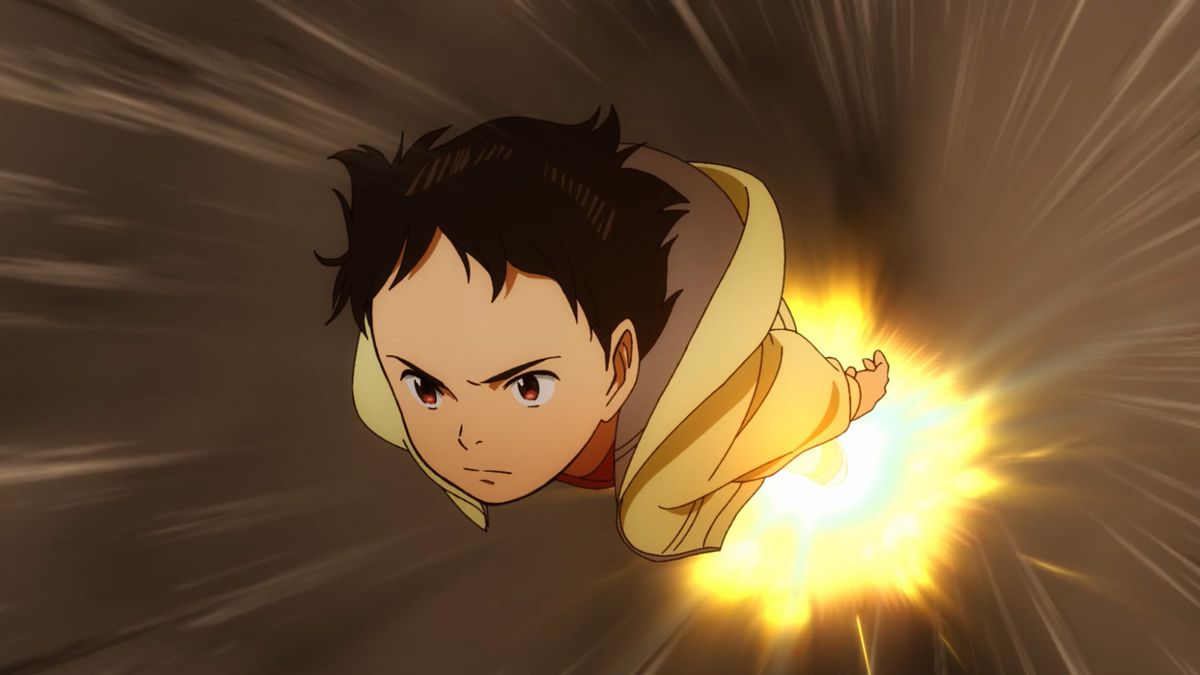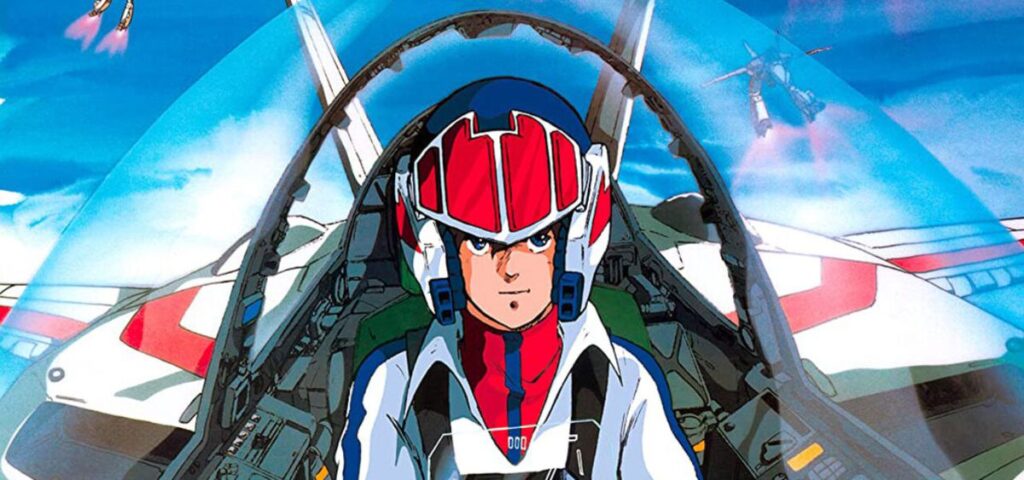Joaquim Dos Santos is one of the most influential and successful animators of his generation. Even if you’re not immediately familiar with his name, you’re no doubt familiar with a series or film he’s worked on.
The 46-year-old Portuguese American director’s filmography is studded with contributions to some of the most highly acclaimed animated shows of the 21st century, from episodes of Justice League Unlimited and Avatar: The Last Airbender to executive producing series like The Legend of Korra and Voltron: Legendary Defender. That’s not even mentioning what is easily his greatest professional accomplishment to date: co-directing Spider-Man: Across the Spider-Verse, the 2023 follow-up to the Oscar-winning animated superhero film.
Dos Santos was one of several high-profile guests who were invited to the 2024 Crunchyroll Anime Awards to present this year’s nominees and honor the accomplishments of the anime industry at large. Polygon had the opportunity to speak with Dos Santos ahead of the awards to discuss his personal history with anime, what fascinates him the most about the medium, and the artists and animators that inspire him in his own approach to storytelling.
This interview has been edited for content and clarity.
Polygon: What was your first favorite anime, and what’s your favorite anime now?
Joaquim Dos Santos: They’re both the same. I don’t know if it was my first anime per se, because I think anime had been kind of infiltrating the U.S. for many, many years without us really realizing it back then. But the first one that stood out to me that I knew was not made in the U.S., that existed outside of Western storytelling conventions, was Macross. In the States, it was called Robotech.
Image: Studio Nue/Big West Frontier
I remember that made a huge impact on me. You have to remember it was the mid-’80s and ’90s, and all the cartoons at the time — and I love them all, by the way — Teenage Mutant Ninja Turtles, G.I. Joe, and Thundercats, they were all great, but they felt like they were essentially driving products for kids. Macross was the first one that had all the stuff I loved as a kid, which was giant robots and aliens, but it also had these love stories that were woven in. People died and stayed dead, and the characters had to deal with that death and what it means to be at war with somebody else. What does it mean if your enemy becomes your friend? Those intricacies really made a huge impression on me, so that one to this day is still my favorite.
You’re a visual storyteller who pulls inspiration from a variety of different sources. What is quality that is unique about anime that personally inspires you as a creator?
Honestly, it’s the appreciation of the quiet moments. It’s the little observations that allow you to paint a picture or feel like you’re using your other senses when you’re really just looking at a screen and seeing moving pictures. It’s the subtleties of, you know, in an action sequence, doing an extreme close-up on foot positioning and the micro movements that happen, as opposed to the big stuff. The big stuff is important, but all of that really helps paint the picture for the audience.
That’s the stuff that I really remember sort of sneaking its way into my little palette of influences, and I didn’t realize it was even happening until probably when I got in the industry and the generation that was bringing me in was asking me, like, Why are you doing all these cuts to really small little things? and I was like, Oh, is that not what we do? Are we not trying to, like, sell the feeling of the scene? And that’s when I knew it had gotten in there.
Were there any anime you looked to for inspiration while working on Spider-Man: Across the Spider-Verse?
I mean, I think it’s undeniable that anime in general had a huge impact on the creation of the visuals for that film and [Spider-Man: Into the Spider-Verse]. I think now, we’re of a generation where it’s like, an entire generation has grown up with it as part of their artistic influence. I don’t know that it was anything that we could point to.

Image: Columbia Pictures/Marvel Entertainment/Sony Pictures Animation
If I’m talking about more recent stuff that sort of infiltrated, I think an animator like Yutaka Nakamura [known for his work on Cowboy Bebop, Fullmetal Alchemist, and My Hero Academia] who essentially revolutionized what a flash frame can be and how impactful that can be. I know his work was referenced really heavily by members on the team. I mean, look, we’re all fans, right? When I got into the industry, [animation] was still very much a paper medium. We were all still doing storyboards on paper, and so we would pass around these massive binders of artist references, and now we’re essentially passing around hard drives with the best cuts of all the animators out there. So yeah, Yutaka Nakamura’s work was a massive inspiration for us.
FLCL still to this day holds the line. That’s still an anime that everybody looks at and really studies and breaks down. I don’t know if it’s any one thing, but anime as a whole was a massive influence on us.
You’ve had a long and illustrious career aside from directing Spider-Man: Across the Spider-Verse, including work on shows like Avatar: The Last Airbender, The Legend of Korra, and Voltron: Legendary Defender. All three of those are heavily influenced by anime, with some fans even going so far as to argue that they qualify as anime themselves. What are your thoughts on that debate?
It’s dangerous to pick a side on that debate. But I do think the fact that we’re even in that discussion, or that any of those shows is in that discussion, is a huge honor and it means a ton. I am excited by the fact that animation, just in general, is becoming this globalized, beautiful thing.
I mean, if you look at the amount of international presenters that are going to be here at the awards, it’s huge. There are artists that I work with that have worked on Naruto and One Piece who are from the Midwest, in the U.S. So I think it’s more a testament to the power of anime and the fact that it’s become this global language. So yeah, the fact that we’re even considered and people will go to bat for us is a huge honor. But I can’t pick a side, man. [laughs]
You mentioned Yutaka Nakamura before. Do you have any other favorite Japanese animators?
Oh, man. I mean, that’s a loaded question. When I think about when I was growing up, I think about things like the Itano Circus and Macross without even realizing that was an influence at the time, sort of just making its way into my brain. Mamoru Oshii [known for directing 1995’s Ghost in the Shell] is huge. Sushio [known for his work on FLCL, Gurren Lagann, and Kill la Kill] is another one. Not really an animator per se, but you can’t deny that [Dragon Ball creator] Akira Toriyama was a huge influence just generally on the medium. From there, the list kind of just goes on.
Yutaka [Nakamura] is an easy one because those cuts sort of sit in their own little pocket universe. But I think about how many animators might not have that distinct visual take, but their work otherwise works so beautifully to create the whole. That to me is almost a bigger superpower. You bring in the heavy hitters to do the crazy stuff, but the ones that sort of sit in the bigger team and make the entire piece of work collectively, those animators are heroes as well.
What’s a recent anime that you’ve watched and enjoyed, or one that you’re looking forward to watching?
I’m really looking forward to watching Pluto. I haven’t seen it yet, but I’m really looking forward to it. Recently, though, I tell you, we were five years on [Spider-Man: Across the Spider-Verse], and I didn’t have time to do anything. And post-Across the Spider-Verse, we’ve just been on this crazy press tour, and that’s why I have things lined up that I haven’t really gotten around to.

Image: Studio M2/Netflix
I’m trying to think of the last thing I really sat down and took in. There was this vampire anime on Netflix, Sirius the Jaeger. I got through half of that and that was astounding. I will say this, though, I’ve been watching Dragon Ball Z with my son. He’s 8 years old, so he just became a DBZ devotee. So I’m watching all the classics with him and that’s really special. The fact that he’s coming into this on his own now and starting to figure it out without me pushing it on him. I want to make sure I’m not influencing him too much. He’s found his own favorite anime and that’s been really special.
Spider-Man: Beyond the Spider-Verse was delayed from its original release date last year. Can you offer any explanation as to why it was delayed, or an update as to how far along the production is now?
I can tell you that it is going. I can tell that we’re sort of taking a cue from the video game industry. We’re giving it time to cook and making sure that it can be the best thing that it can be. I think that’s the realest answer. You look at these films, they’re massive, just huge undertakings, and it has to be all points across to make sure that it’s as good as it can be.

